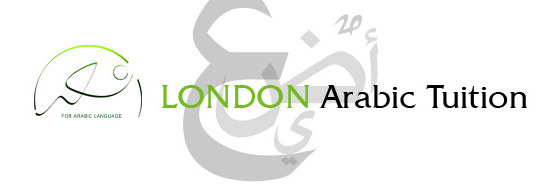Are you interested in learning Levantine Arabic, the dialect spoken in the Levant region of the Middle East? If so, Teach Yourself Spoken Arabic: Levantine Arabic Dialect is the perfect resource to get you started.
TEACH YOURSELF SPOKEN ARABIC ( Lulu)
This book provides you with all the knowledge you need to begin your journey into understanding the Levantine dialect of Arabic. The book focuses on Modern Standard Arabic and the differences between it and other dialects. It is an invaluable resource to anyone wanting to travel, work or study in the Levant. With over 200 fully conjugated verbs, example sentences, and useful expressions, you will have all of the tools you need to start speaking Levantine Arabic with confidence.
For extra practice, the book also includes dialogues for relevant situations so you can get a feel for real-life conversation in the language. You can also learn essential vocabulary that gives you all of the words you need to talk, write and understand Levantine Arabic. Combining the latest linguistic research with practical and relevant examples, Teach Yourself Spoken Arabic: Levantine Arabic Dialect is the ideal resource to take you from a novice to a confident speaker and learner of Levantine Arabic. By following the comprehensive, step-by-step guide in this book, you will be able to understand and speak the dialect of the Levant like a native. Learning to Speak Levantine Arabic: A Comprehensive Guide for the Confident Speaker and Learner For those wanting to become confident speakers and learners of Levantine Arabic, a comprehensive, step-by-step guide is essential.
This article will explore how to teach yourself this popular dialect spoken in the Levant region. By following the guide, you can become a competent speaker and understand the nuances of this Arabic dialect like a native.
The first step in teaching yourself Levantine Arabic is to acquire a wide range of resources. Books, language audio, and digital tools are all available depending on your learning style. Choose resources that focus on the Levantine dialect specifically and pay attention to the correct pronunciation of the language. Familiarize yourself with the words and phrases that are used often in the region, as these will be of great help when communicating.
The second step is to start developing a basic vocabulary, and learning to read and write the language. Start by studying nouns and verbs, as well as learning basic Arabic conjugations.
Regular practice will help you quickly develop a good understanding and command of the language. Now you are ready to practice your conversational skills.
The best way to do this is to find a conversation partner from the Levant, or in your local area.
This is an ideal opportunity to practice speaking and understanding the language, as well as gain insight into the culture and customs of the region. The fourth step is to refine your skills by listening to conversations and watching Levantine-based TV programs, films, and news broadcasts.
Make sure to pay attention to the proper pronunciation and syntax of the language, as well as the use of idioms and slang. Finally, it is important to remain motivated, by attending language classes, talking to the local Levantine community, or by taking a language tour of the region. By keeping yourself motivated and familiarizing yourself with the language and culture, you can become a confident speaker and learner of Levantine Arabic.
By following this comprehensive guide, learning Levantine Arabic can become an enjoyable and achievable experience. Before long, you will be able to understand and communicate with native speakers as if you had grown up in the region. Learning a new language can be a challenging and rewarding experience, and if you choose to look into spoken Arabic, you can start with its engaging and versatile spoken forms. The Levantine dialect of Arabic is the primary form spoken in the Levant region, including several countries in the Middle East, and it is a great place to start if you want to learn to speak Arabic. Though mastering this dialect is far from easy, there are several ways to make the process of learning it more enjoyable and achievable.
With Levantine Arabic, you will be able to understand and communicate with native speakers as if you had grown up in the region, so it can be an exciting opportunity if you’re ever fortunate enough to visit the area. In order to get started, you should look up audio recordings of Levantine Arabic and familiarize yourself with the different sounds and pronunciations.
There are several free websites and apps available that feature audio samples of the dialect, as well as accompanying written text, so you can get an understanding of pronunciation and cultural expressions at the same time.
Once you have a good foundation for the dialect’s sounds, phrases, and syntax, it is well worth your time to look for a native speaker to practice with. While there are few online communities that offer instruction in this dialect, your best bet is to look for a native speaker in your area or online. Once you have a partner to practice and converse with, it will quickly become much easier to absorb the language naturally. It can also be helpful to look for published resources that are available for this dialect.
There are many books, magazines, and websites that provide guidance and practice material for spoken Arabic, and it can be a great way to get a comprehensive and engaging introduction to the language.
Speaking Levantine Arabic can be a difficult and time-consuming task, but with the right resources and dedication to practice, it can become an enjoyable and achievable experience.
Before long, you will be able to understand and communicate with native speakers as if you had grown up in the region.



Leave a Reply
You must be logged in to post a comment.